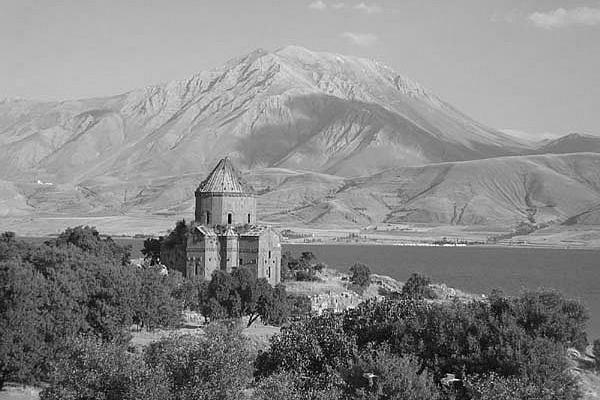
The normalization of relations between Turkey and Armenia will bring considerable benefits to the different levels of social, economic, technical, industrial, technological and policy of the two countries, especially the effect of the opening of the border common between them.
Of the Cold War, Armenia was then the smallest Soviet republics, was a point of contact between the USSR and Turkey. The opening of a border post there in 1927 and the line of railway through Anatolia and connects Kars to Gyumri then allowed the establishment of a trade flow between the two countries.
But 1991 marked the end of the Soviet Union. Ankara recognized the Republic of Armenia on 16 December 1991 a few months after its declaration of independence. Turkey then made no formal in his new neighbors in the Caucasus distinction, recognition of Armenia has also held in the same period as that of Azerbaijan and Georgia, the two sister republics of South Caucasus .
The next two years will develop contacts between Turkey and Armenia amid growing regional instability in the South Caucasus. The Nagorno-Karabakh, in particular, does not take long to affect Armenian-Turkish relations.
Following this, the Turkish government then announced April 3, 1993 its decision not to allow the delivery by the Turkish territory of aid to Armenia. The only passageway then used between the two countries, the border post Dogu Kapi / Akhourian is closed.
The regional context becomes critical to the development of Turkish-Armenian relations: the establishment of diplomatic relations, opening channels of communication and direct exchanges between the two countries depend. Closing Dogu Kapi / Akhourian and the decision not to open another border post, located few kilometers from the center of Igdir and Yerevan Kapi Alican / Makara, have the effect of establishing an economic embargo at the expense of Armenia. This unique border crossing will remain closed, even though opening the border crossings between Turkey on the one hand and Georgia and Nakhichevan another.
The flight between Istanbul and Yerevan, established with the opening of an air corridor in 1996, is the only direct link between the inhabitants of two neighboring countries. The border is now marked by a double fence topped with barbed wire and the two countries are separated by a no-man's land and minefields: an iron curtain separates this hermetic Turks and Armenians.
Turkish policy is essentially to keep the border closed, which in practice makes the trade between the two countries very difficult, even if it is not prohibited. And given that the border between Armenia and Azerbaijan is also closed, Armenia found largely cut off from the outside world.
The opening thus of the Turkish-Armenian border will have a clear impact on Armenia. Armenia is a small country with limited resources. It needs to import to meet domestic demand and export to earn foreign exchange. However, the volume of foreign trade is low. Imports were double exports, resulting in a substantial trade deficit of around 29% of GDP. Most of the analyzes carried out by international institutions on the economic situation of Armenia perceive the closure of the Turkish-Armenian border as one of the main problems of the country.
According to estimates of the World Bank, Armenia's GDP would increase by 30 to 38% in case of lifting the embargo (i.e. from 570 to 722,000,000 U.S. dollars). In comparison, the U.E. and Member States spend an average of 40 million per year in technical assistance and aid. Some economists met in the region include a doubling of GDP in case of lifting the embargo Double Azerbaijani and Turkish.
The natural regional market of Armenia consists of Georgia, Azerbaijan, north-eastern Iran, eastern and south-eastern Anatolia: a market of 50 million consumers represents a GDP of $ 100 billion. However, the Turkish and Azerbaijani embargoes prohibit access to 44% of the regional market of Armenia, since the territories of eastern and south-eastern Anatolia and Azerbaijan are essentially closed. Moreover, these bans increase the cost of access to an additional 38% of the regional market, particularly in the northwest of Iran.
Turkey is the most developed country in the region, with a diversified economy of production and therefore an important potential partner for Armenia. The latter still has a production capacity in a number of industries that benefit from the interaction with the economy of the neighboring country. Turkey has also a strong trade ties with the EU and the United States, including Armenia may benefit.
Indeed, in addition to access to the Turkish market, opening the border will provide access through Turkey to the Middle East and the Mediterranean trade routes, and beyond to the EU markets. Turkey, in pursuing its economic integration with the EU will undoubtedly take his Armenian neighbor to the pan-European economic space.
The difficulties in transporting goods prevent trade flows in certain sectors, including construction materials, some products such as meat, flour or glass, which require special conditions of carriage. According to a study prepared by the Armenian Ministry of Industry and Trade, if the two economic embargoes are lifted, opening a single rail link would increase Armenian exports by 25%, while the opening of four railway networks allow the doubling of exports.
According to the calculations made in the framework of the study by the World Bank, a normalization of economic relations with Armenia will save between $ 6 and $ 8 million a year in transportation costs for non-energy imports, and about $ 45 million by switching to other suppliers of natural gas and oil. The potential increase in exports will be between 269 and 342 million per year, which equates to more than double the total exports. Meanwhile, the amount of additional imports needed to support this export efforts will amount to $ 100 million. The balance of payments should therefore get better more than 220 million, equivalent to 38% of the current deficit of the trade balance. These estimates do not take into account the effects of possible trade liberalization in the region.
The opening of the border therefore seems vital for Armenia, but less urgent to Ankara, where it is considered that the economic cost is the price to pay for political gains expected from the alliance with Azerbaijan.
Rodney Dakessian
Beirut, 22-8-2013

